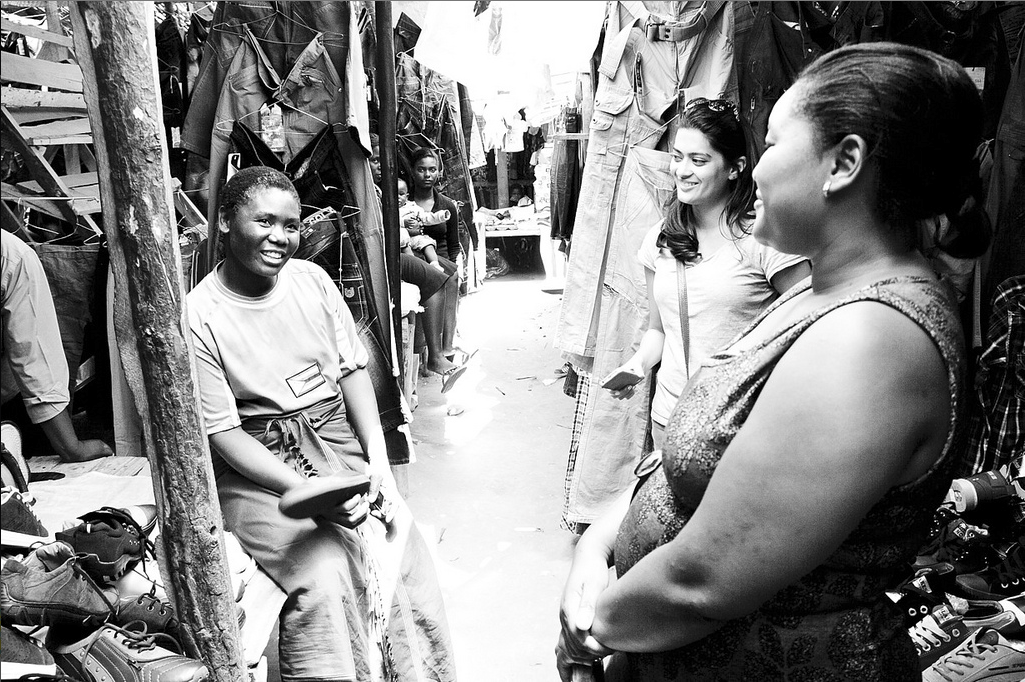“Less is more” is one of those oft-repeated sayings that, well, can get old. It’s trite, simple, and something we’ve all heard on countless occasions. It feels silly sometimes to bring up in conversation – but it’s often wildly true and important to keep in mind in both our personal and professional lives.
When SKI Charities was in its nascent stages, it was critical that founder Shyam K. Iyer remind himself of the “less is more” adage. When the organization began, Shyam had to ask himself certain questions in order to narrow the scope of his project and remain focused. There are people everywhere, in every city and town across the globe, who could benefit from the types of programming that SKIC provides. As much as a business or organization may want to “do it all,” specialization and focus is essential to maximizing one’s impact. Trying to do more often winds up with watered down results or growing too fast for one’s resources.
Shyam knew that he had to target one or just a few specific locations, and specific demographics of people within those locales. What began as a desire to help the world ended up turning into focused attention on women and young girls in Lebu, Chile and Mutare, Zimbabwe. “We want to, through the fewest touch points, reach as many socially constructive areas as possible,” Shyam says. Here’s how SKIC does it:
How SKIC Maximizes Its Impact:
- SKIC was brought to very deliberately chosen locations, where supply does not meet the demand. Shyam reasoned that, in a place like India for example, there are far more micro-finance organizations and charities available to the disenfranchised. When Shyam first began SKIC in Zimbabwe in 2010, nobody else was doing what SKIC was doing. The organization remains one of the few if only organizations that caters to Zimbabwean entrepreneurial spirit and pride by utilizing micro-finance loans.
- SKIC focuses on women. Shyam has been asked many times, “why not men too?” He reasons that in general, and in the countries that SKIC is present, women are more disenfranchised and marginalized than men. Women have always been lower on the totem pole – “it’s time to level the playing field,” Shyam affirms. Despite their lower status, women have proven to invest more in their community with the money that they do make. “A woman will first grow her business, which will then hire more people, which will support more suppliers and provide more jobs in the community. When she makes money, she will put her kids back in school, which of course increases the education of a community, a crucial component to the wellbeing of a society. She will herself become more respected and become a leader in her community. She will become a role model for younger women, which will result in a ripple effect with even more people,” Shyam contends. “The spillover effect is strong with women, the money goes further.”
- In the charity’s SKIpgo program, Shyam chooses to focus on girls ages 3 to 5. He notes, “Early stage learning is the most important because it’s where you can make the greatest impact on a girls’ life, for the rest of her career. With girls this age we can teach them even the simplest things like hygiene, respect for themselves, respect for each other. The schools we place them in are not just about teaching them English or history or math. It’s about teaching them how to be strong, independent women. And if they grow up with that idea, if we engrain it in them from the very beginning, they’ll absorb it and live it and be able to reverse some of the gender dynamics that are so rampant in our world.” Though the charity hates to have to say no to teenagers, Shyam reasons that “we want to start at the very beginning. It’s important to start the education process in the most impressionable stages of growth and learning.”
- SKIpgo selects girls who have positive familial environments within which they have a greater chance of being supported in their education and actually excelling in the program. Shyam and his on-the-ground team work to find the best possible candidates for the SKIpgo program. These are girls who come from financially needy families, but also families that value education and will encourage their girls’ studies. These are the children who are most likely to excel in the program, and as they age, share their knowledge with peers and their own families.
The desire to “help the world” and to make it a better place is one that many people feel deep within their core. What’s most intimidating about confronting this desire is where to begin. Non-profit and micro-finance work inhabit a large landscape with many avenues to pursue. It may feel counterintuitive to narrow the scope of one’s focus, but really, it is the path toward positively and maximally affecting a group of people, no matter how small the group is. We’ll leave you with another trite adage worth thinking about, and one that SKIC stands by: “Quality over quantity.”


